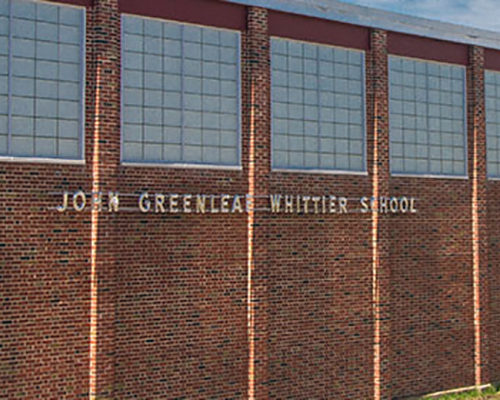Haverhill officials have until April 13 to submit requests to the state School Building Authority for help paying for renovation or construction projects. They can start submitting applications on Friday.
In 2017, the city submitted a statement of interest to the SBA for repairs and renovations to the Albert B. Consentino School on Washington Street. The SBA rejected the city’s application in December.
City Councilor Colin F. LePage said he believes the scope of the city’s request was too narrow.
“I think we can do more,” LePage said.
Pointing to the city’s improving financial situation, LePage said officials should ask the state to help with school improvements on a larger scale.
“We’re doing better now. We have $11 million in free cash.”
In addition, LePage said, city officials have the goodwill built up by the successful Hunking School project.
“Exactly a year ago today, we opened the Hunking five years after we started talking about it,” LePage said, reminding his council colleagues that a year before the Bradford middle school building was partially condemned, the city had asked the state in 2010 to help pay for “green repair” projects such as new windows and heating system updates.
In 2011, “we had to close half of the Hunking School for construction failures,” LePage said.
Forced to replace the school, Haverhill sent a new statement of interest to the SBA, which approved a state-of-the-art 1,005-seat school to serve kindergarten through grade 8, at a cost of more than $60 million. The state reimbursed the city about 70 percent of the construction cost.
After the Hunking opened, councilors, School Committee members and members of the public began to call for equal resources for students on “the other side of the river,” LePage said.
Rather than the limited renovation of the Consentino School, LePage recommended the city submit three statements of interest, one each for the Consentino, Tilton and J.G. Whittier schools.
He argued that the city should act before another school suffers the same fate as the Hunking. Councilors agreed.
Councilor William J. Macek said now is a good time to start the next school building campaign.
“We need to find a way to improve our inventory of schools citywide, not just the Consentino. We need to level the educational opportunities in all parts of the city,” he said.
Macek said all members of city government are aware of the needs and the deficiencies in many school buildings.
For example, Councilor Michael S. McGonagle pointed out that Greenleaf School students got an extra day of vacation on Tuesday because the school’s boiler malfunctioned and there was no heat in the building.
For the second time in a little more than two years, Consentino suffered frozen pipes, LePage said, this time because asbestos insulation that had to be removed was not replaced.
“It’s unfair not to provide all the children with the same resources. The building has to lend itself to the education for the 21st century,” Macek said.
LePage reminded councilors that the J.G. Whittier Middle School on Concord Street (pictured) draws students from many of the same neighborhoods as Consentino.
Like the Hunking, Whittier sits on a lot with playing fields where a new school could be built, keeping students in the old building until the new one is complete. After students move to the new school, the old could be razed and improved playing fields constructed where the old school stood.
Describing the Consentino School as having “great bones” and a solidly built structure, LePage said the interior no longer meets students’ needs for a modern learning environment.
Tilton School is a beautiful old building, he said, but is crowded and unsuitable to the technology needs of today and the future.

